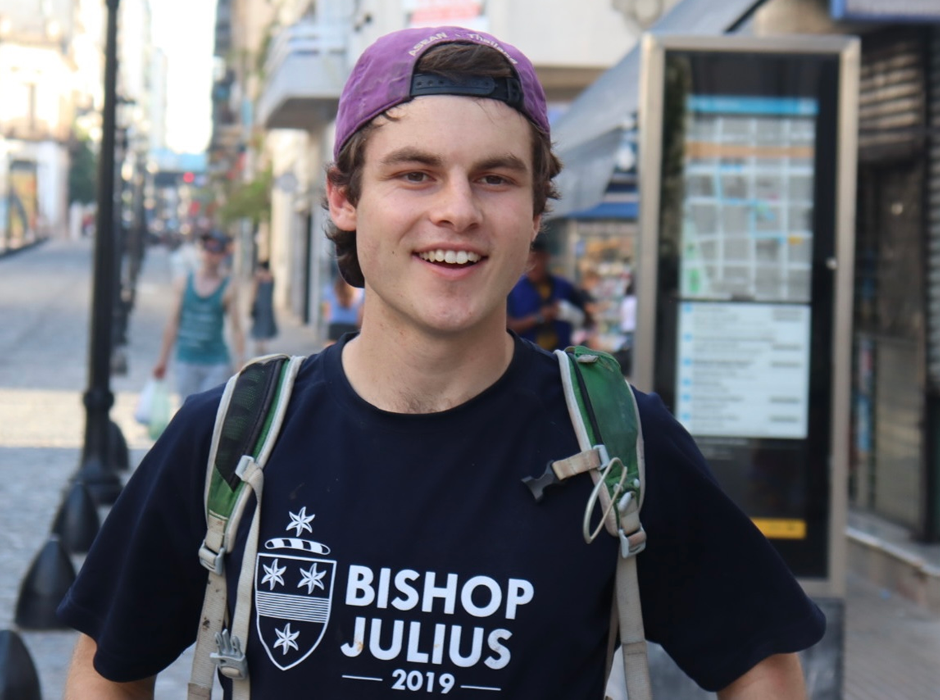
Fifth year student Gavin Bishop won $500 in an essay competition.
Two Christchurch campus-based University of Otago medical students have scooped top prizes in a 500-word essay competition run by Rare Disorders New Zealand (RDNZ), aimed at encouraging medical and nursing students to engage with and learn about rare disorders.
Fifth year student Gavin Bishop won the top $500 prize, with Jackie Hazelhurst (a fellow 5th year student currently taking a year out of medicine to complete a BMedSci (Hons) in UOCs Department of Medicine), sharing runner-up honours with a nursing student from the Manukau Institute of Technology.
RDNZ says it was “blown away” by many of the entries, with the top three shining through due to their out-of-the-box insights on rare disorders, exhibiting the kind of thinking the organisation feels is required to “grasp the complexities of what is rare”.
Gavin says writing the essay was an excellent opportunity to raise his awareness of rare disorders. RDNZ estimate about 300,000 people in Aotearoa New Zealand are affected by more than 7,000 rare disorders.
“I thought about this when visiting the Pītau-Allenvale school in Christchurch and coming across three children in the same day living with Angelman syndrome, a condition I’d never heard of in over 4 years of medical school,” Gavin says.
Jackie says she has a few people in her life living with rare disorders.
“I kept them in the back of my mind when writing this essay,” she says.
“For one of them, a decision from Pharmac changed the direction of their life and greatly increased their life span and quality.”
Gavin is pleased his essay hit the mark – focussing as it did on the fact that rare disorders are ironically quite common – at least when put into aggregate.
“With six per cent of all New Zealanders living with a rare disease or disorder, identifying and treating rare disorders is a hugely important challenge for our healthcare system,” he says.

Jackie Hazelhurst
In his essay, Gavin says understanding the importance of adaptable systems, especially for conditions that are often overlooked or misdiagnosed, emphasises the need for a healthcare system that values understanding, navigability and transparency in equal measure.
He argues this is a powerful reminder of the responsibility healthcare professionals have to all their patients, not just those with common or well-understood conditions.
“In my essay I tried to clarify the problem in terms of ‘the long tail’, as in a graph where all the small events add to a large sum, and compared that to the example of Spotify - an organisation which has to grapple with a similar challenge of need-variety in a completely different area,” he says.
Jackie’s essay begins by quoting one of the more common sayings taught to medical students; “when you hear hoofbeats, think horses, not zebras”.
“This maxim reminds medical students - who have the stereotype of often first thinking of obscure causes for diseases that are typically only seen in textbooks - to rule out the most likely diagnoses first,” Jackie says.
“However, for all doctors it is important to think broadly, avoiding cognitive biases such as the representativeness heuristic.”
One of the points she raises in her essay is that data collection matters, and that capturing it increases the political will to provide better supports for those affected.
“Who is counted informs where funding goes,” she says.
“Therefore, if we only record rare diseases in their individual categories, rather than considering them in the broader category of a rare disease, we will fail to recognise that approximately six per cent of our population has a rare disorder.”
View Gavin Bishop’s winning entry here.
View Jackie Hazelhurst’s runner-up entry here.